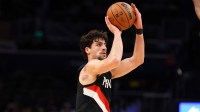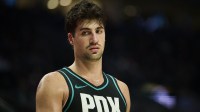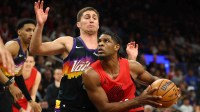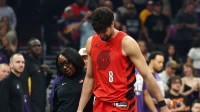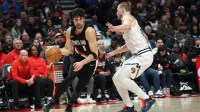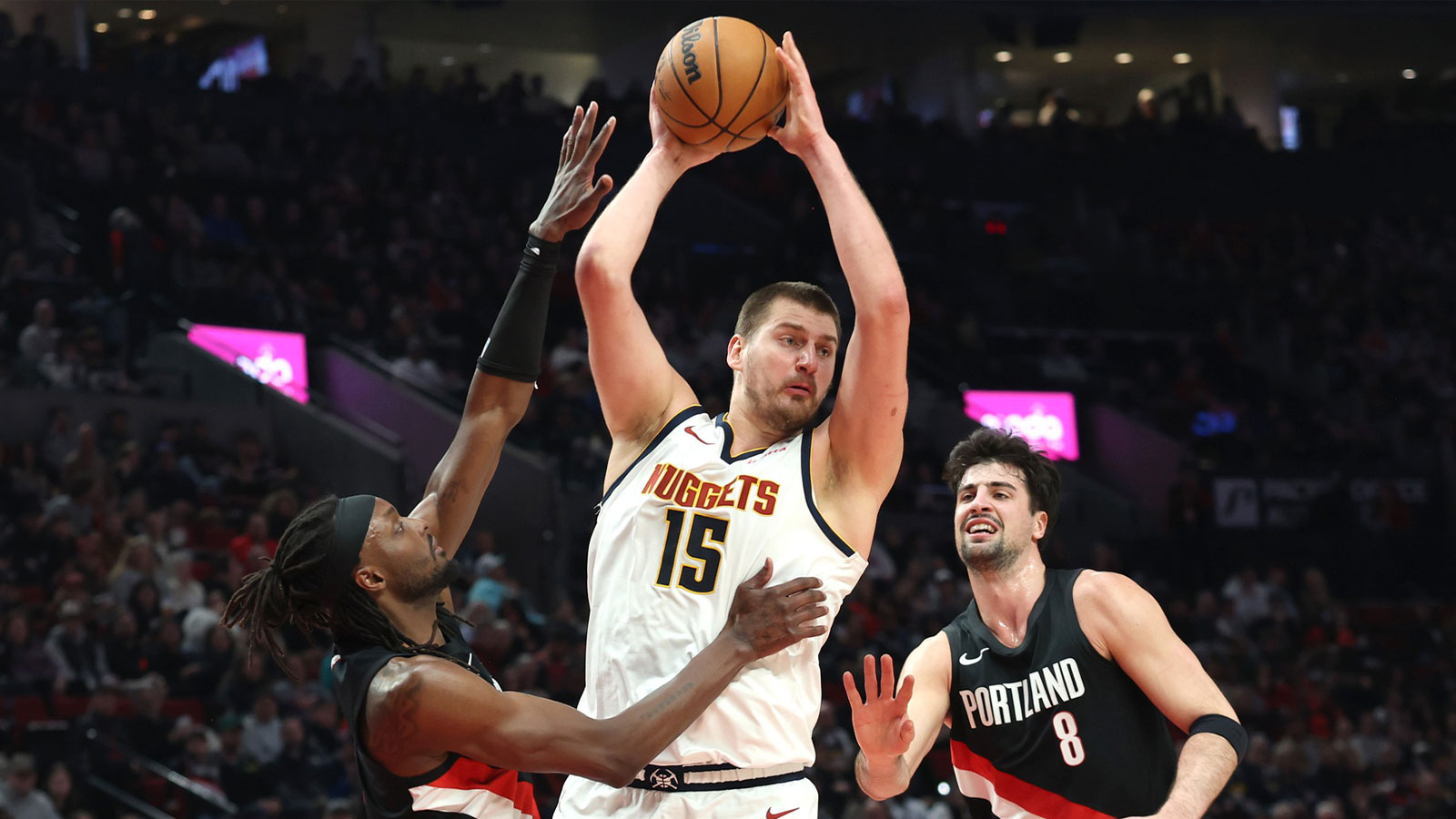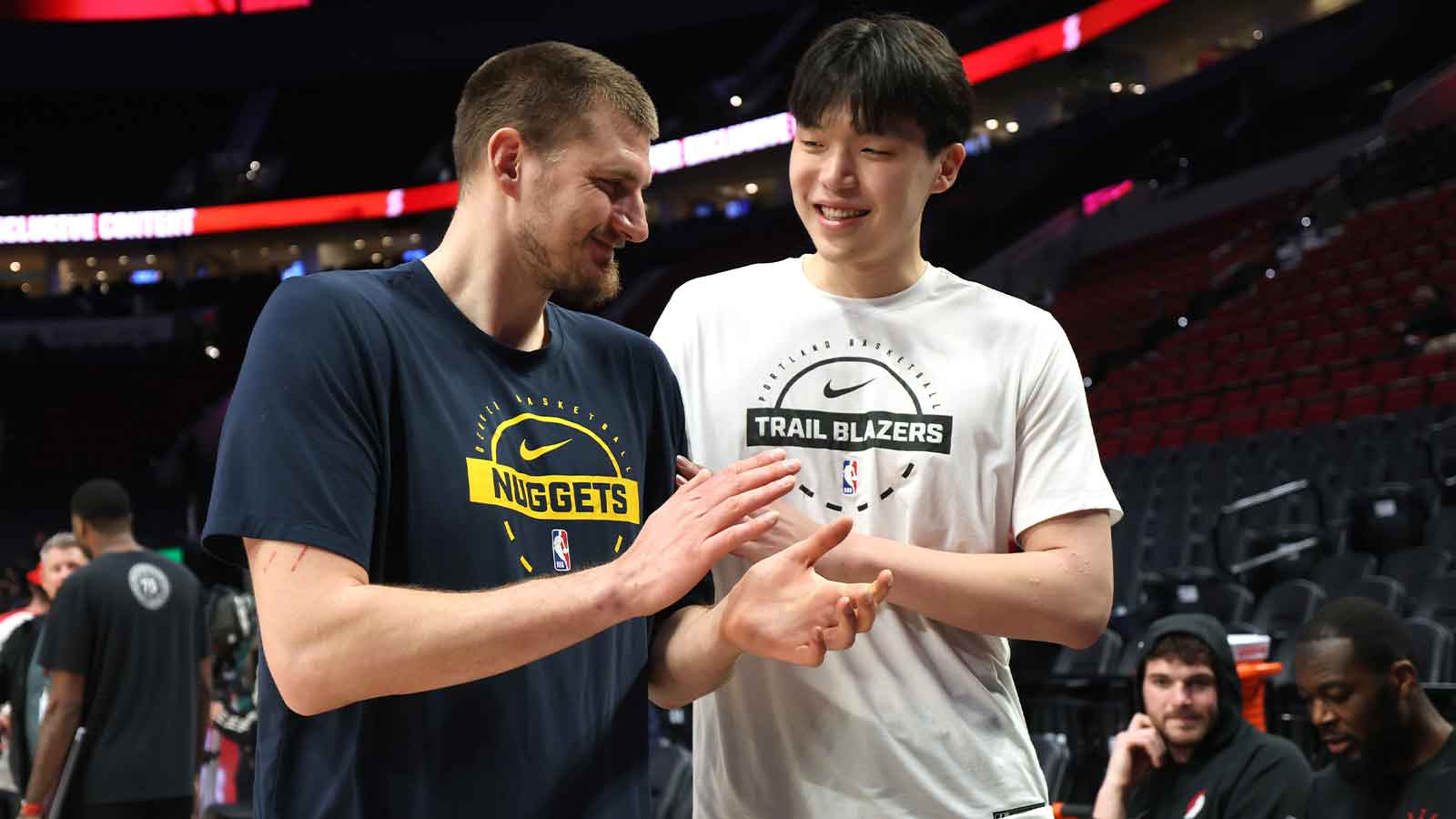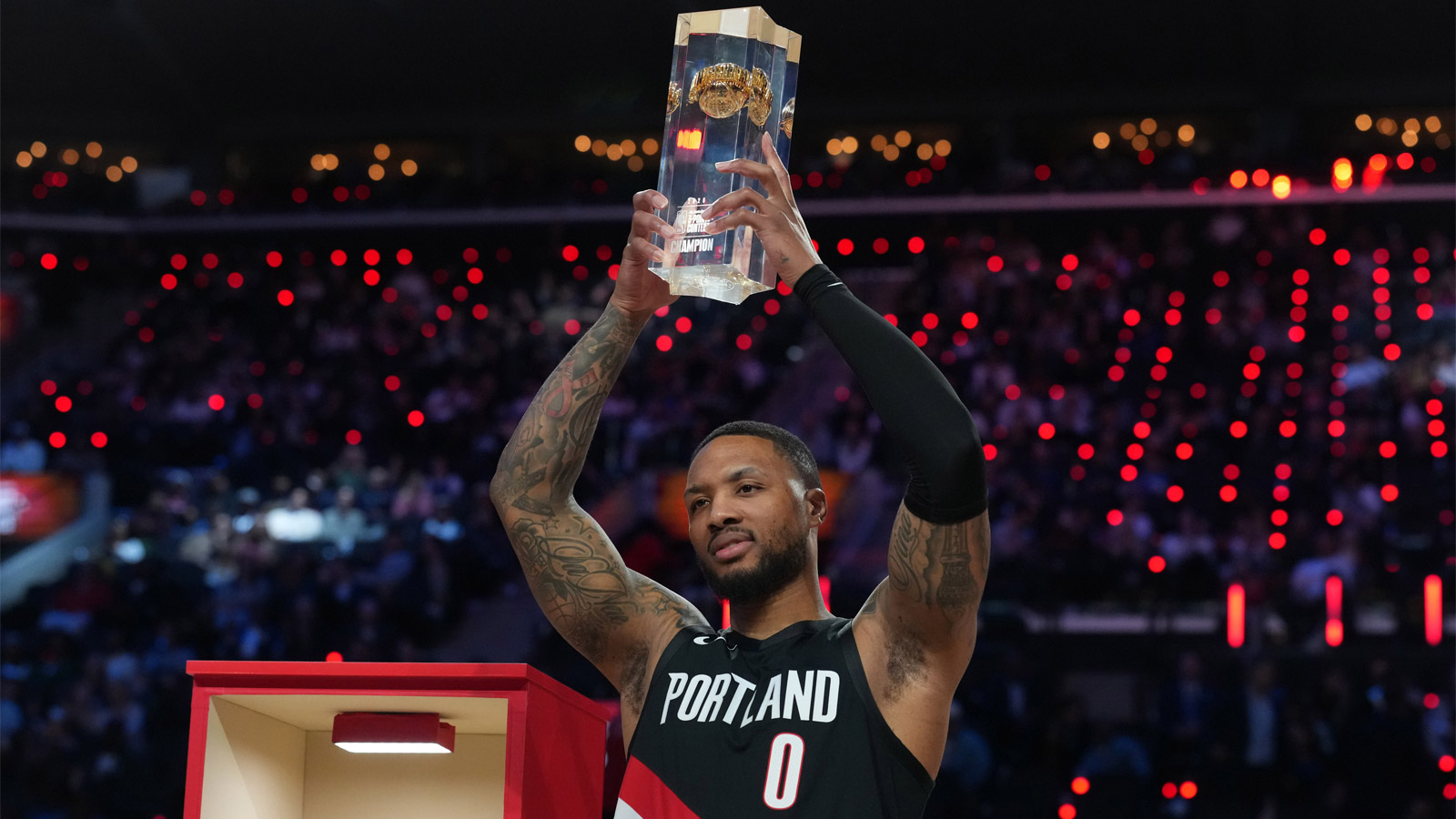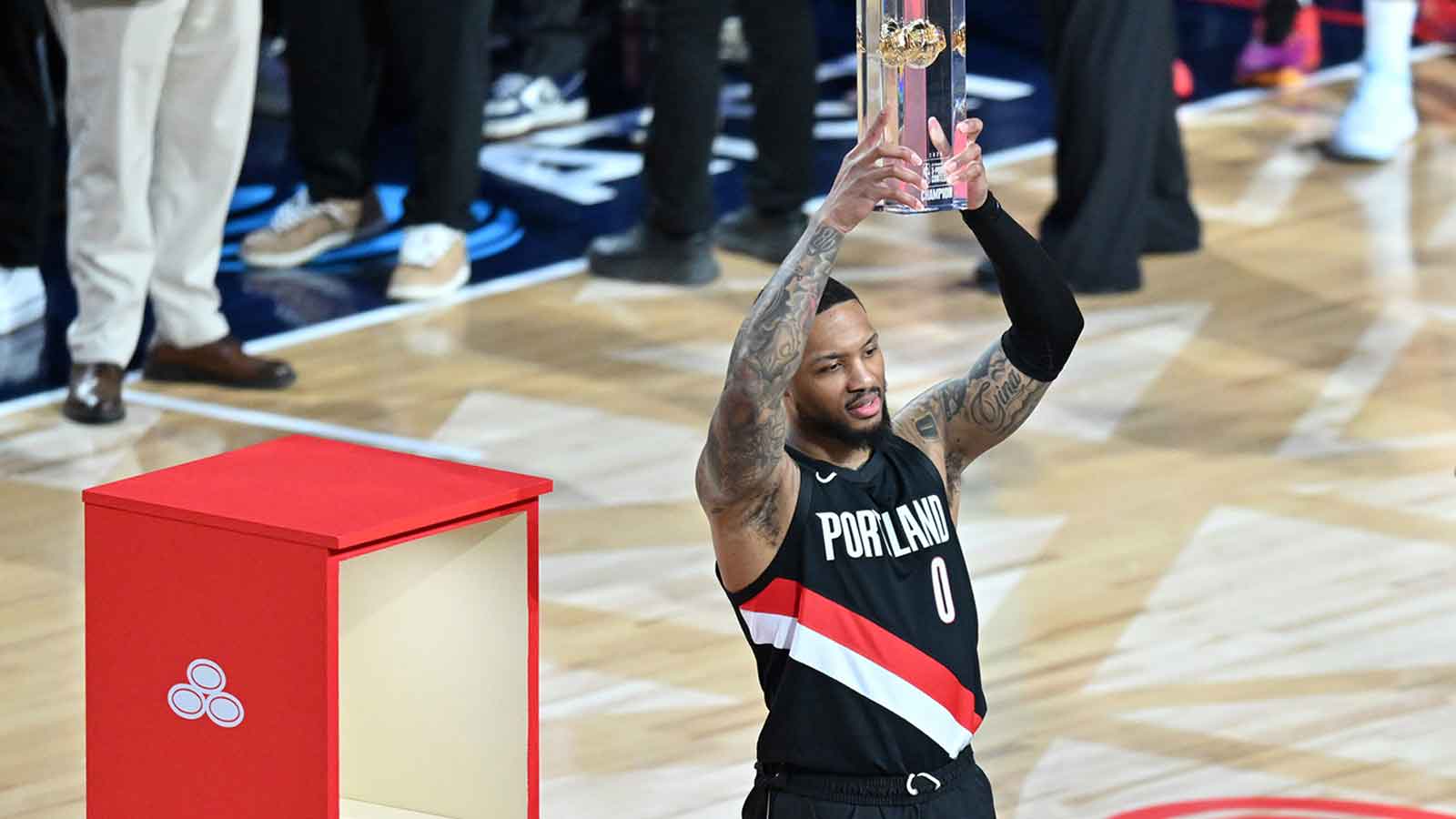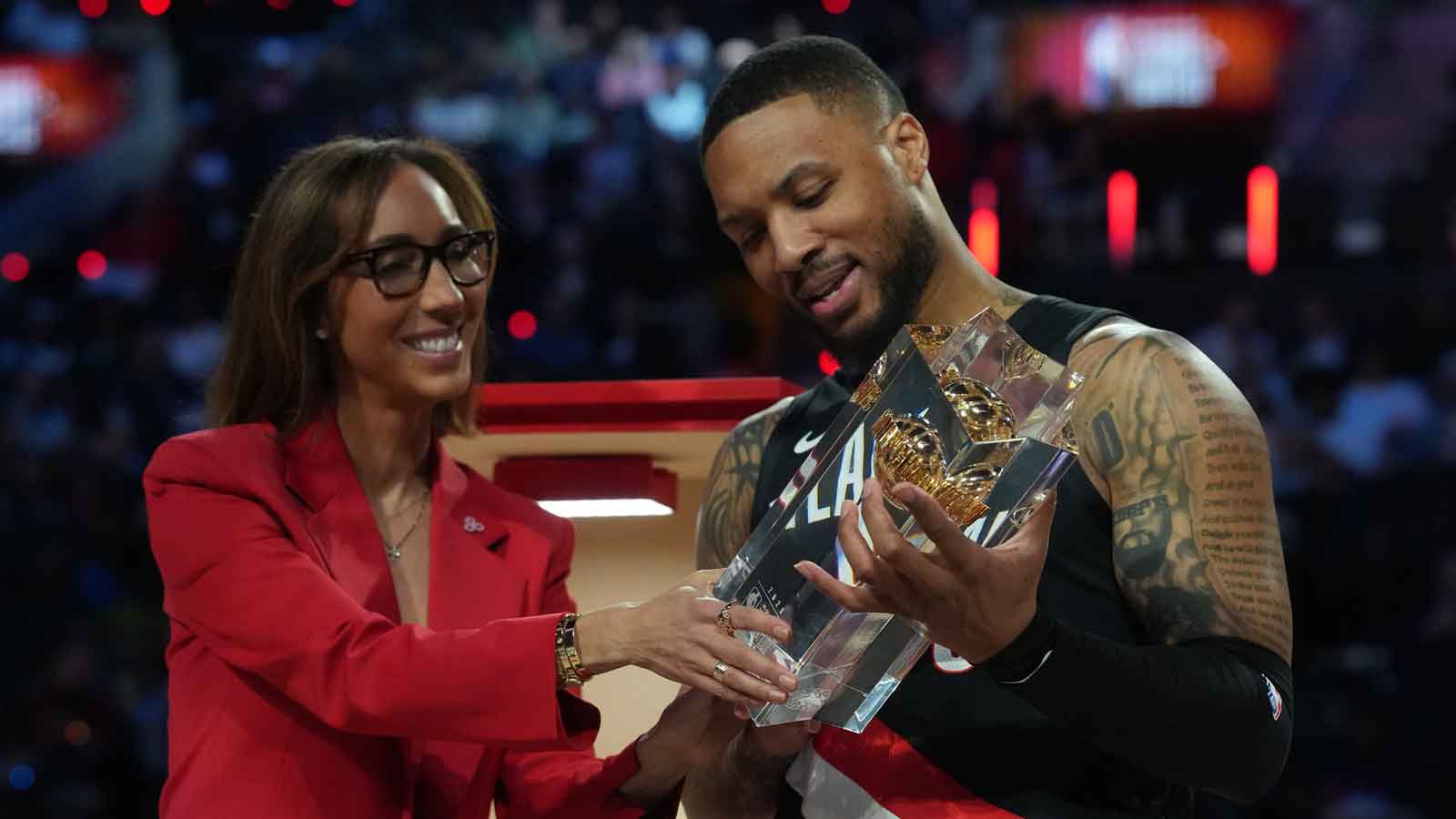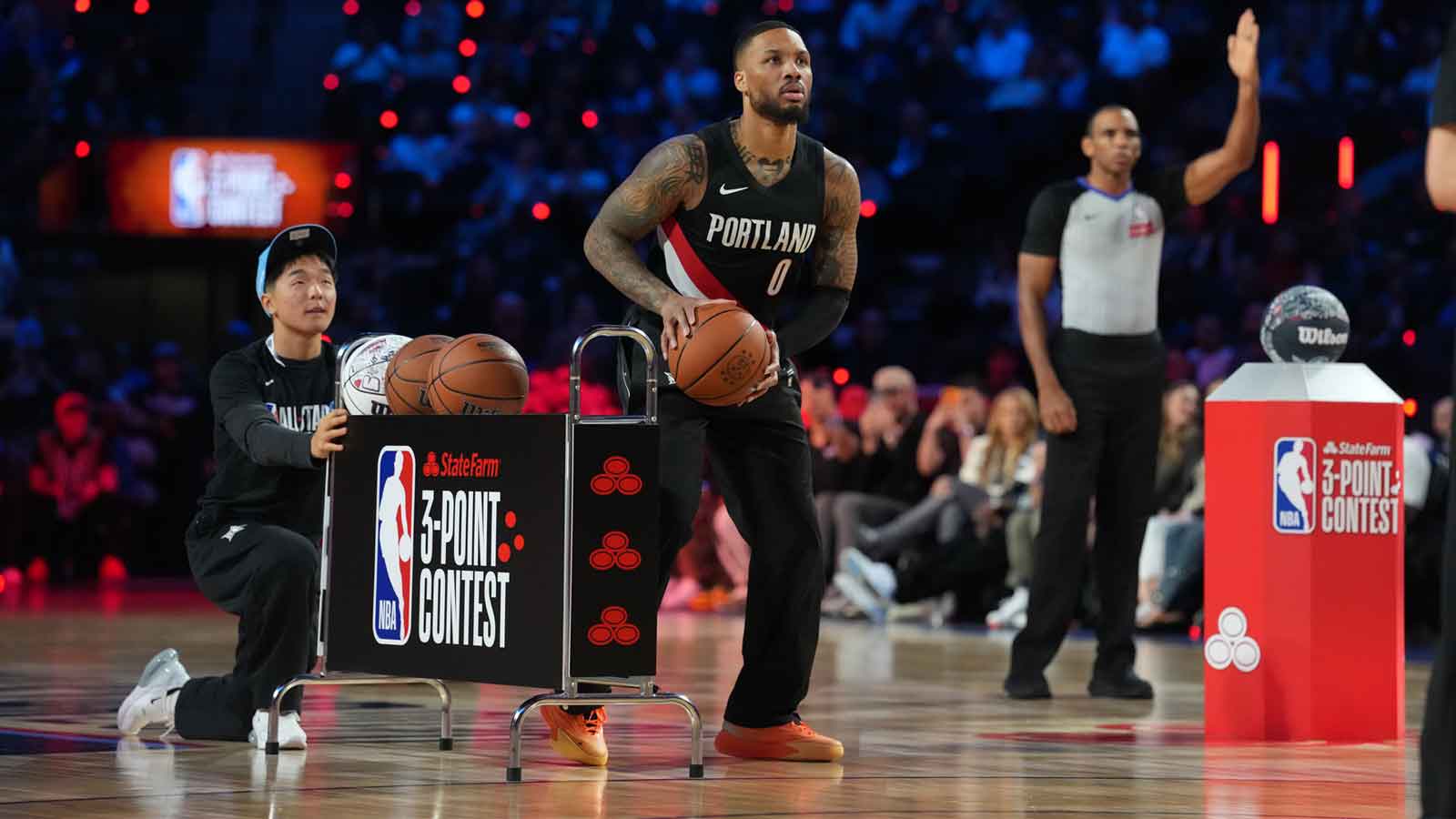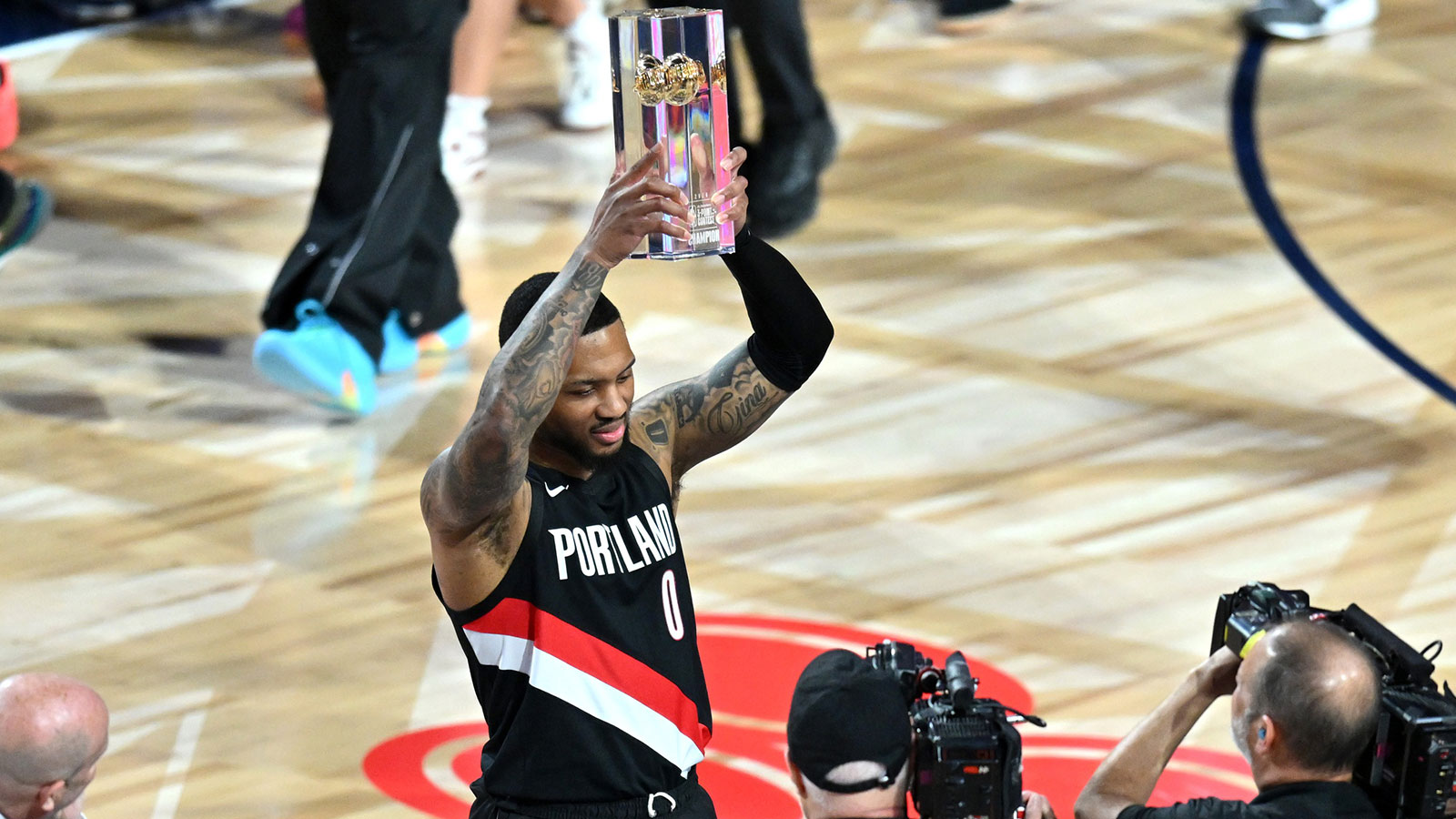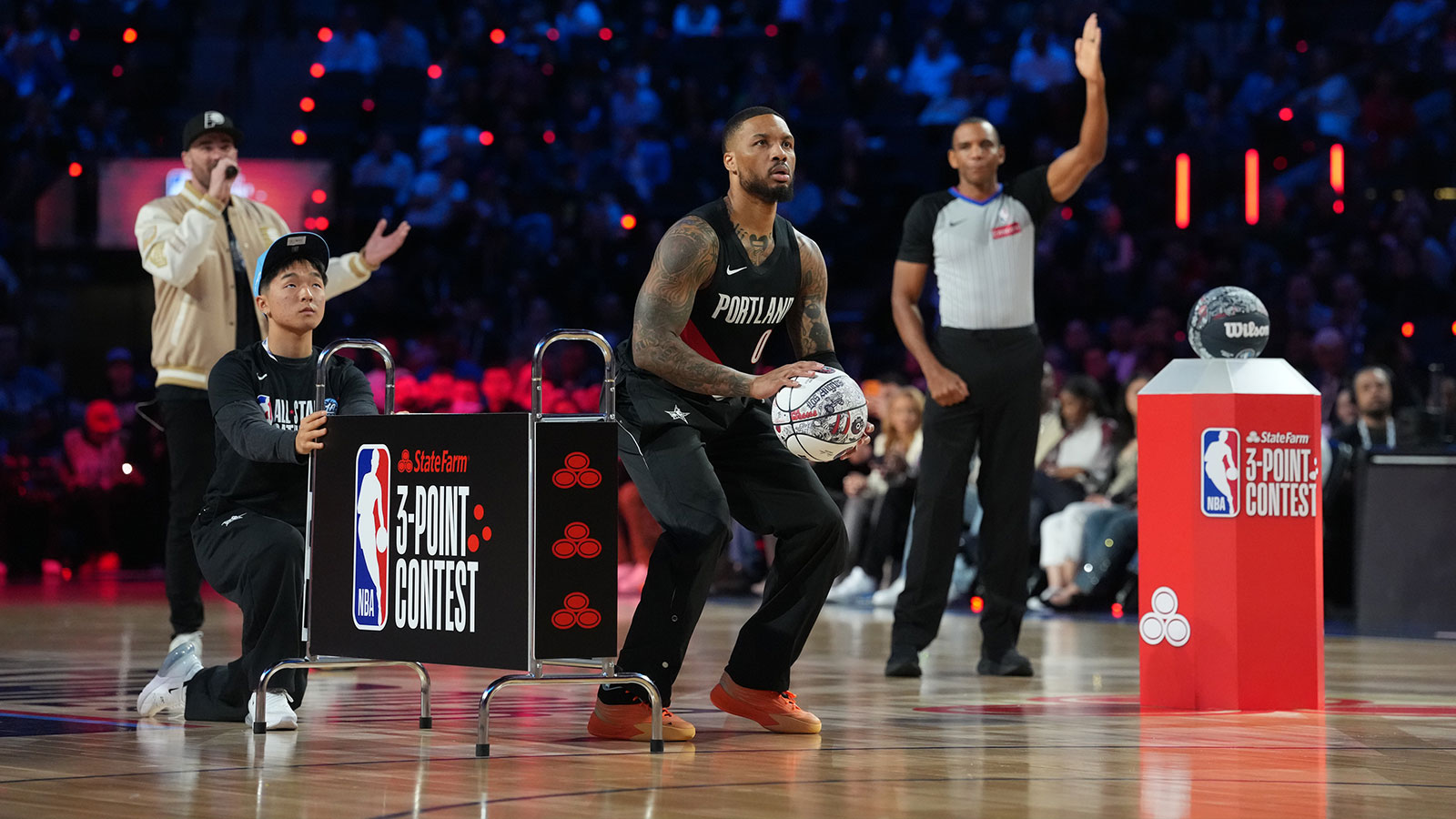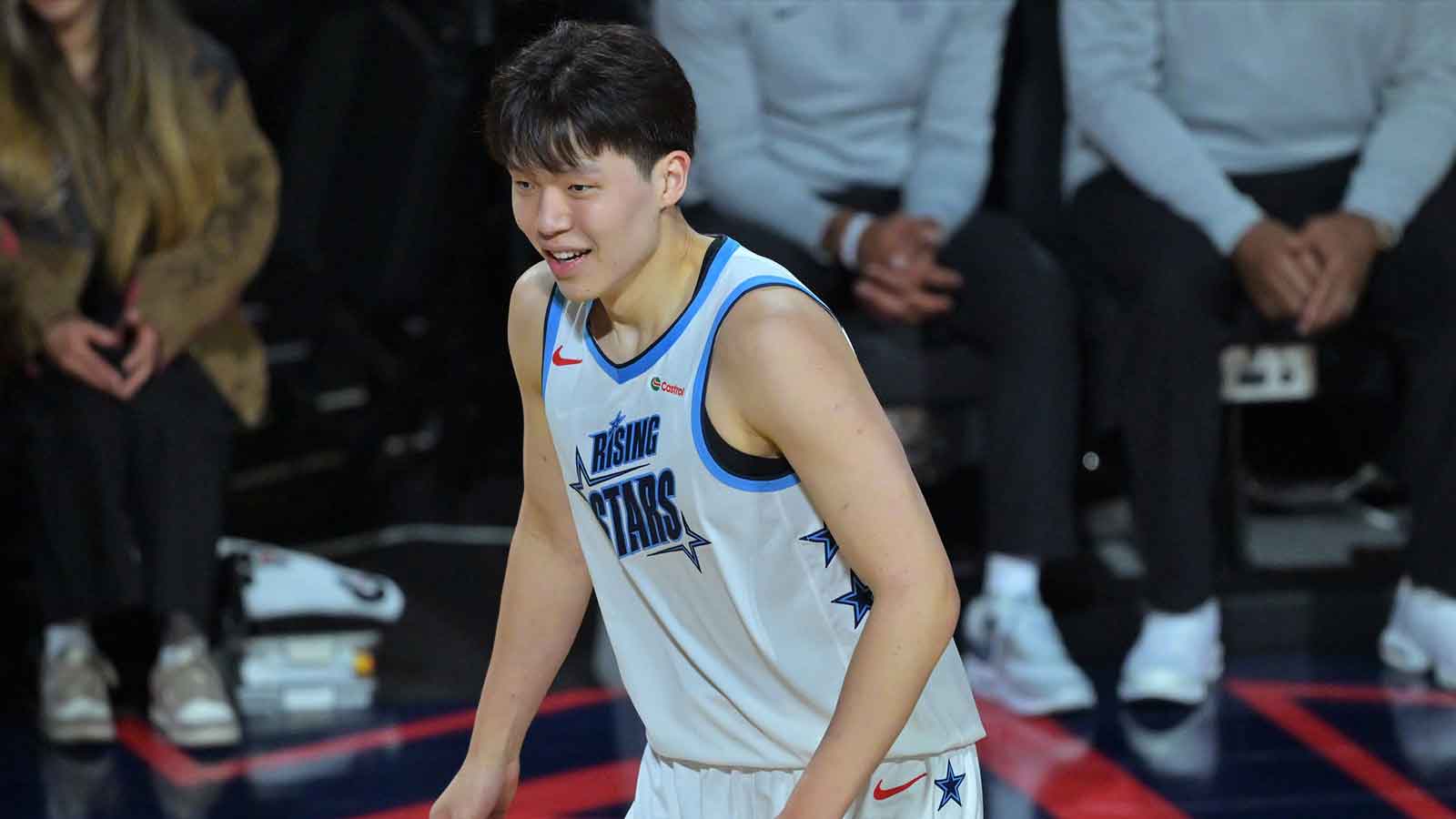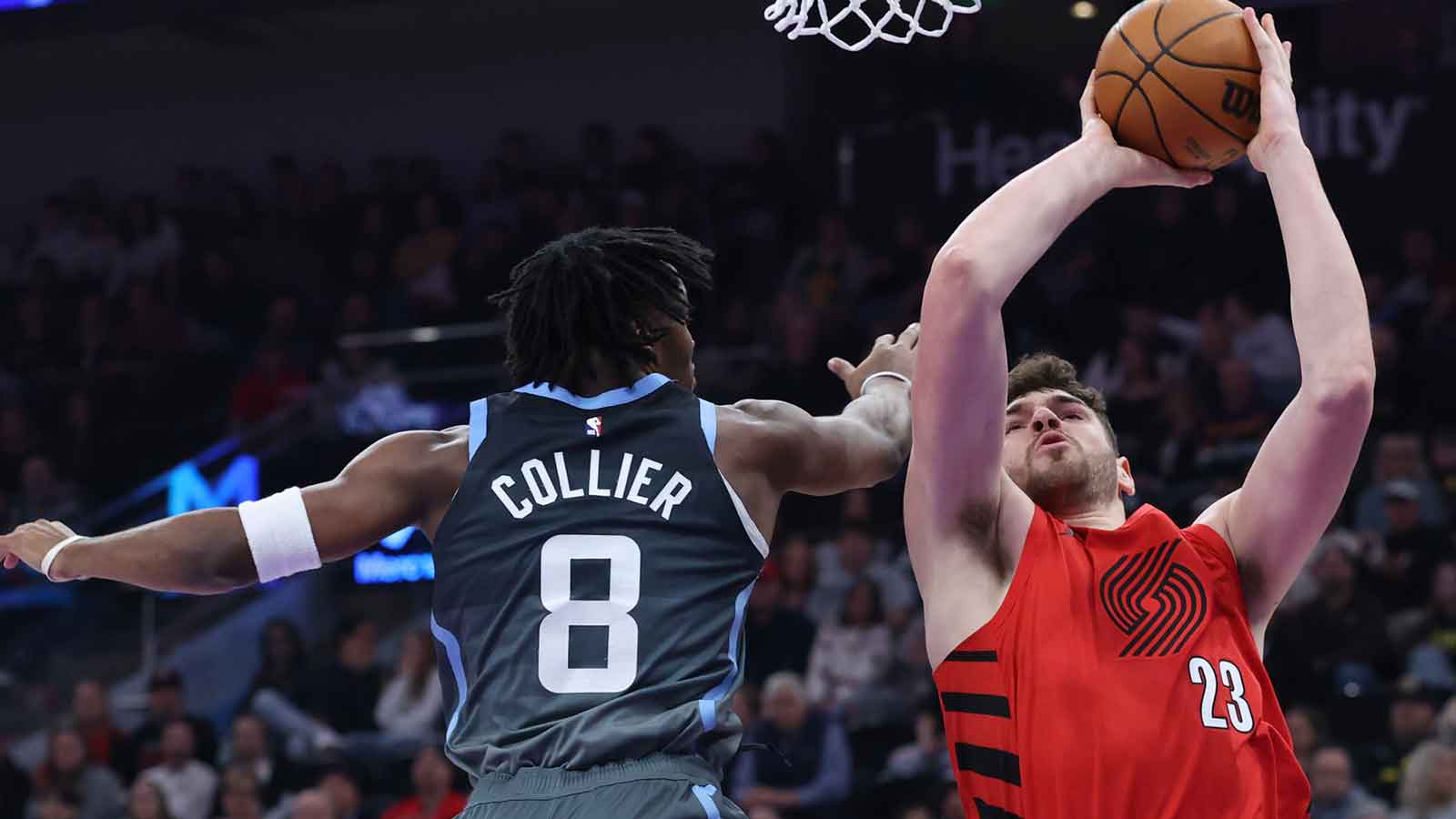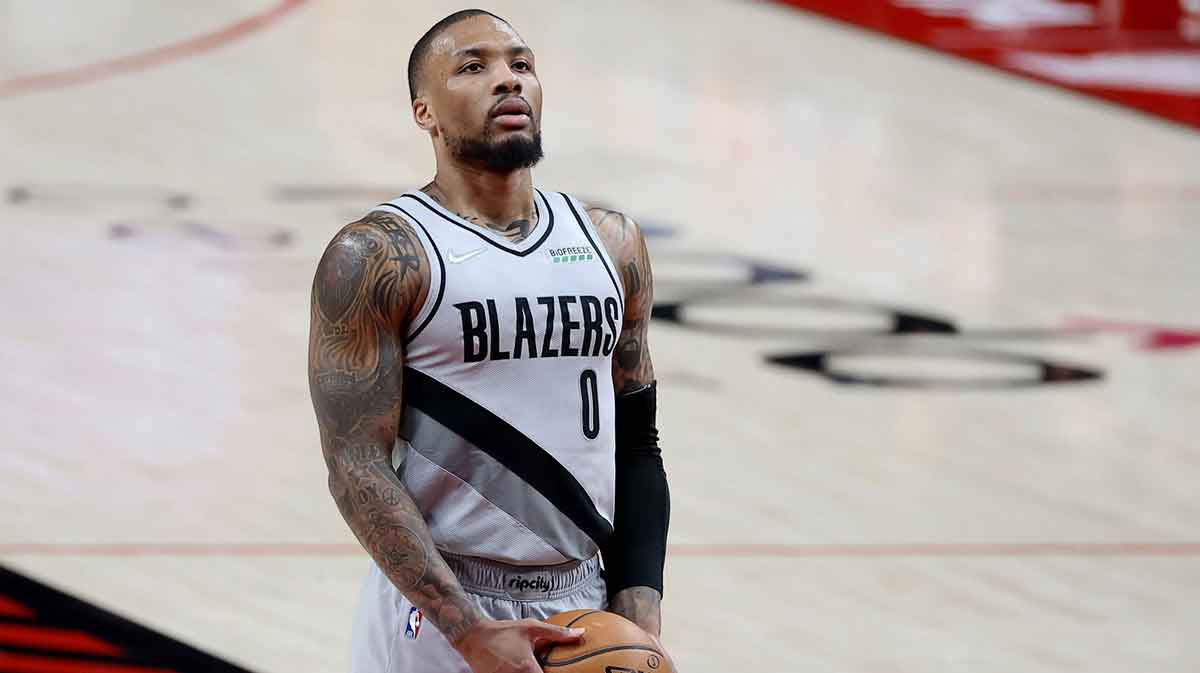Damian Lillard has already refuted a report from The Athletic about his mounting frustration with the Portland Trail Blazers amid team-wide on-court struggles and the dismissal of longtime general manager Neil Olshey.
These mfs love drama too damn much. https://t.co/ej15TkAybZ
— Damian Lillard (@Dame_Lillard) December 6, 2021
As he reiterated on several occasions over a chaotic, controversial summer that ended with him fully re-committed to Rip City, Lillard doesn't leak subliminal messages to the media. Any reporting on his mindset or plans based on anonymous sourcing always deserves a grain of salt. It's not like the notion that he's dismayed with the Blazers' start this season is breaking news, either.
Lillard has been frank and forthright about his team's labors in the season's early going, always keeping them in context of coaching, stylistic and roster changes while admitting Portland's need to improve over the 82-game grind. There's been no indication he's displeased with Chauncey Billups, either.
The Athletic's reporting about Lillard's alleged exasperation stemming from the hire of a rookie head coach not only conveniently ignores his repeated desire to build the Blazers into a contender alongside Billups, but also his on-record support of Billups' candidacy—in that very publication, in fact—the morning after Lillard named Jason Kidd as his personal favorite to succeed Terry Stotts in early June.
Still, given the gravity of Portland's organizational flux, one tidbit from The Athletic's story seems revealing despite all those caveats: Lillard's reported interest in playing alongside Ben Simmons.
Multiple sources have told The Athletic that Lillard would like to play with Philadelphia 76ers three-time All-Star Ben Simmons.
The Blazers have been earmarked as a possible trade destination for Simmons ever since his disastrous performance in Game 7 of Philadelphia's loss to the Atlanta Hawks in the second round of the playoffs. The prospect of him continuing his career in Rip City is hardly new. Lillard's alleged hopes of teaming with Simmons hadn't been widely reported previously, though, and could be the guiding light that helps interim general manager Joe Cronin chart a new path forward for Portland.
Here are three reasons why the Blazers must seriously explore trading for the Sixers' stranded, absent three-time All-Star.
Lagging trade value of veteran incumbents
The framework of a theoretical trade that could placate both teams is obvious: Simmons to Portland in exchange for C.J. McCollum and a package of draft picks and players. The Athletic reports that Philadelphia has already refused an offer of McCollum, a protected first-round pick and Anfernee Simons or Nassir Little, coming back to the table with a counter-proposal of McCollum and multiple draft picks and pick swaps.
It's safe to surmise the Sixers' asking price has dropped in recent weeks, and also that the Blazers are far more inclined to move McCollum now that Olshey—who proudly drafted the Lehigh product with the tenth overall pick in 2013—is finally gone. An ideal scenario for Portland would be Daryl Morey agreeing to a deal that sends Simmons to Rip City and McCollum, Robert Covington and a protected first-rounder back to the City of Brotherly Love.
Only the Sixers know how realistic those parameters are, but it's telling they seem extra favorable to Portland given the inclusion of Covington for Simons or Little. Billups has saved his harshest criticism this season for the Blazers' starters, almost regularly lamenting their lack of effort and engagement compared to reserve units on the postgame podium. With Lillard entrenched as a franchise icon and Norman Powell quietly thriving in wake of signing a five-year, $90 million contract, any major changes—in terms of lineup adjustments or trades—were always likeliest to involve Portland's three other starters.
The problem isn't just that McCollum's trade value is trending downward, but Nurkic and Covington's are, too. One reason for that irrespective of their disappointing play in 2021-22: Both are due new contracts come free agency.
If Simmons isn't the Blazers' top trade target, what other player of his caliber could their middling stable of assets bring in? The unique extent of Simmons' strengths and weaknesses make him a tough fit for literally any team in the league, and circumstances of his ongoing absence from the Sixers—even accounting for legitimate concerns about his mental health—haven't exactly endeared him to front office decision-makers and fan bases across the league.
Simmons is literally the best Portland can do on the trade market while keeping Lillard off-limits. Even if it means giving up Simons or Little and multiple first-round picks with McCollum, the Blazers need to be aggressive with Philly in the next round of trade talks regarding Simmons.
New on-court ceiling
Simmons isn't Draymond Green and Lillard isn't Stephen Curry.
The latter isn't anywhere near Curry's peerless level moving without the ball despite finally committing to doing so more often this season, while the former hasn't ever been the undersized rim-protector or all-time help defender Green remains on the other side of the ball. The chemistry and synergy that make Green and Curry one of the most complimentary star tandems ever can't be duplicated.
Still, Lillard elicits more pressure from defenses than any player in basketball other than Curry. He routinely draws two defenders to the ball in pick-and-roll, leaving Portland with a numbers advantage behind the play that Simmons is far better suited to exploit than any of Lillard's current teammates. Simmons is an obvious fit in Billups' active, rotation-based defensive scheme, too, his speed, length and anticipation quickly closing gaps away from the ball that have proven too big for the Blazers' undersized guards and comparatively slow-footed forwards. His merits as an on-ball defender need no explanation, and would be especially helpful in downsized, switch-heavy lineups in which he slots next to two of Little, Covington and Larry Nance Jr.
No player in the league sans Curry would more easily mask Simmons' offensive deficiencies than Lillard. Billups' approach on both sides of the ball could maximize Simmons in ways he never was under Brett Brown and Doc Rivers in Philadelphia.
Pairing Lillard and Simmons wouldn't make their team a title contender or even necessarily vault Portland toward a top-four seed in the West. But just the specter of those possibilities points to the heightened ceiling of a Blazers squad that's never seemed more topped out as currently constructed, an unacceptable status quo with Lillard firmly on the second half of his prime.
Doing right by Dame
Lillard is the best player in franchise history. His loyalty to Rip City hasn't just made him a local icon, but allowed the franchise latitude amid executive dysfunction and team-building missteps that wouldn't have existed otherwise. Most of the Blazers' success over the last decade—including a run of eight straight trips to the playoffs, the longest active streak in the NBA—can be directly attributed to Lillard.
The front office owes him another chance to lead this team to true contention as long as Lillard remains committed to Portland, and won't be able to muster a better one than trading for Simmons. Lillard's days in Rip City, to be clear, could be numbered regardless. What a shame it would be if that proves the case before the team did everything possible to help him achieve his goal of bringing the Blazers their first championship since 1977.



